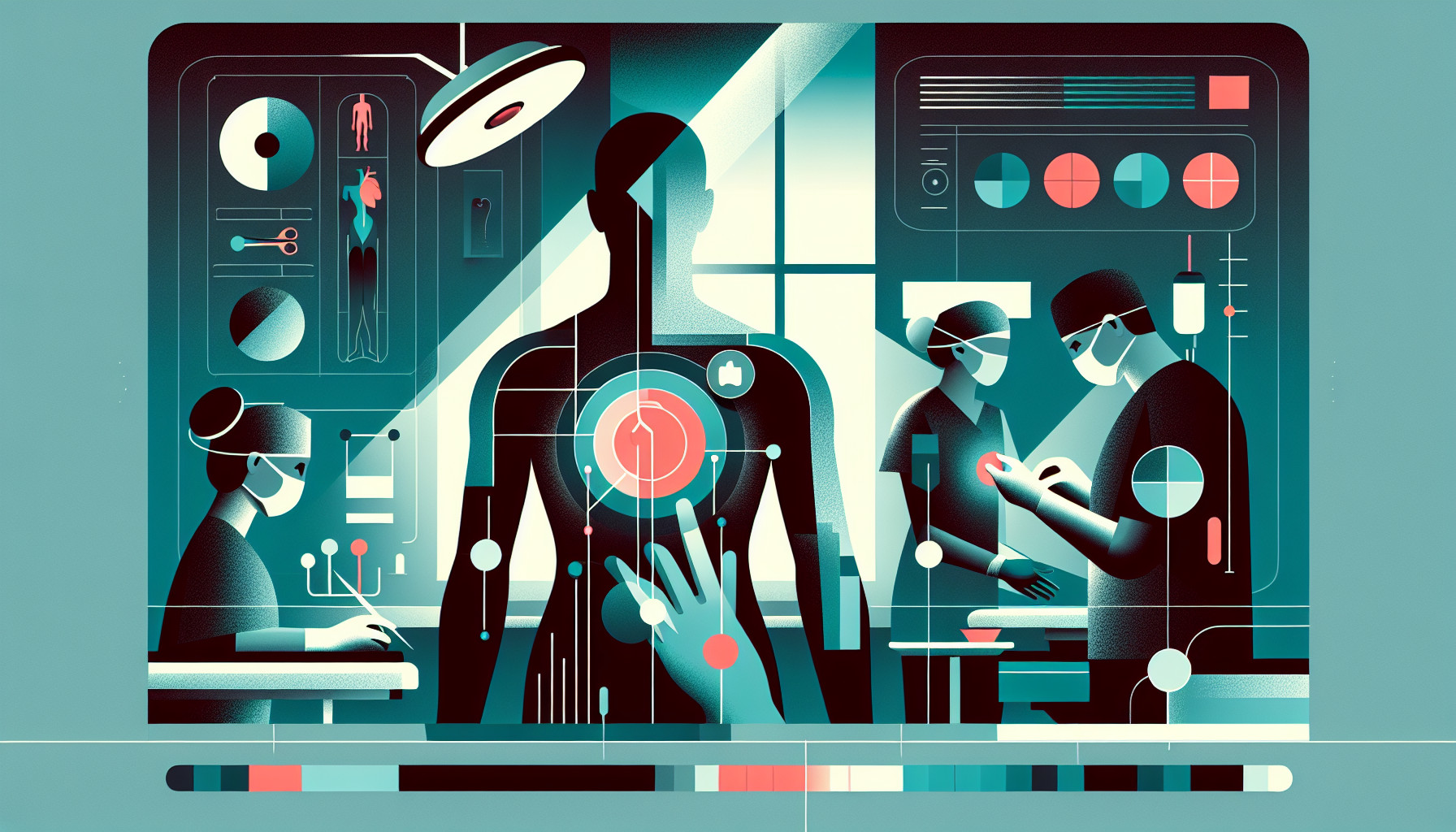Our Summary
This paper looks at the causes and persistence of anal fistulas, a medical condition that can be a problem for patients and surgeons. Anal fistulas are small channels that can develop between the end of the bowel and the skin near the anus. The study considers the physical characteristics of the patients and the fistulas, but also delves into the biological and molecular factors involved. The research notes that these fistulas often have a certain type of tissue surrounding them and are often associated with a type of abscess that contains gut bacteria, suggesting a link to the issue. However, chronic fistulas rarely contain bacteria. The study also points out that there’s increased inflammation and cell transitions in these fistulas, hinting at a role of molecular mechanisms. The research aims to understand all these different factors to better understand how anal fistulas develop and why they persist.
FAQs
- What are anal fistulas and what causes them?
- What kind of bacteria and tissue are often associated with anal fistulas, as indicated by the study?
- How does the research aim to improve understanding and treatment of anal fistulas?
Doctor’s Tip
A helpful tip a doctor might tell a patient about anal fistula surgery is to follow post-operative care instructions carefully to promote healing and prevent complications. This may include keeping the area clean and dry, avoiding strenuous activities, and taking prescribed medications as directed. It’s also important to attend follow-up appointments with your healthcare provider to monitor your healing progress and address any concerns.
Suitable For
Patients who are typically recommended anal fistula surgery are those who have persistent symptoms despite conservative treatment, such as drainage of abscesses and antibiotics. These symptoms may include pain, swelling, discharge, and recurrent infections. Patients with complex or high-risk fistulas, such as those associated with Crohn’s disease or multiple tracts, may also be candidates for surgery. Additionally, patients with fistulas that are causing significant impairment in quality of life or affecting their daily activities may benefit from surgical intervention. It is important for patients to discuss their symptoms and treatment options with a qualified healthcare provider to determine the most appropriate course of action.
Timeline
Before anal fistula surgery:
- Symptoms develop, such as pain, swelling, discharge, and discomfort around the anus.
- Patient seeks medical attention and is diagnosed with an anal fistula through physical examination and possibly imaging tests.
- Conservative treatments may be attempted, such as antibiotics or drainage of abscesses, but the fistula may persist or recur.
- Surgery is recommended as the most effective treatment option for resolving the anal fistula.
After anal fistula surgery:
- Surgery is performed to remove the fistula tract and repair the surrounding tissues.
- Patient may experience some pain and discomfort post-surgery, which can be managed with pain medication.
- Recovery period typically involves follow-up appointments with the surgeon to monitor healing and address any complications.
- Patient may need to make lifestyle changes, such as maintaining good hygiene and avoiding constipation, to prevent recurrence of anal fistulas.
- Long-term outcomes of anal fistula surgery are generally positive, with most patients experiencing relief from symptoms and improved quality of life.
What to Ask Your Doctor
- What is the success rate of anal fistula surgery?
- What are the potential risks and complications associated with anal fistula surgery?
- How long is the recovery period after anal fistula surgery?
- Will I need to make any lifestyle changes after surgery to prevent recurrence?
- Are there any alternative treatment options for anal fistulas?
- How many anal fistula surgeries have you performed, and what is your experience with this procedure?
- What type of anesthesia will be used during the surgery?
- Will I need to follow a special diet before or after the surgery?
- How soon after surgery can I resume normal activities, such as work or exercise?
- What can I expect in terms of pain management after the surgery?
Reference
Authors: Sugrue J, Nordenstam J, Abcarian H, Bartholomew A, Schwartz JL, Mellgren A, Tozer PJ. Journal: Tech Coloproctol. 2017 Jun;21(6):425-432. doi: 10.1007/s10151-017-1645-5. Epub 2017 Jun 15. PMID: 28620877
